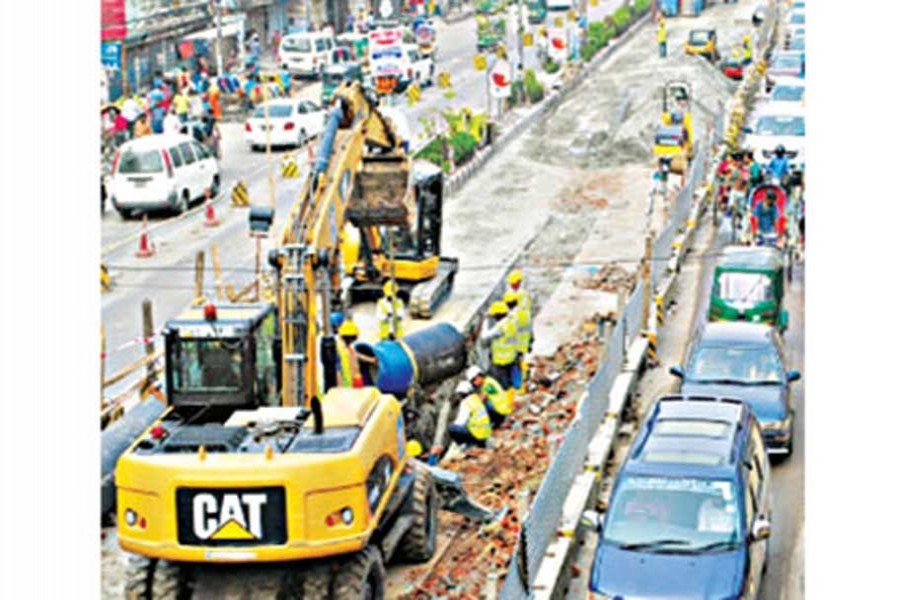So far as public works and project implementation are concerned, missing target has become something of an order of the day. A report carried in this newspaper on Sunday last showed yet another addition to the long list of ministries, departments and public bodies responsible for delayed execution of projects under the Rural Electrification Board (REB). The REB was supposed to complete electrification of the entire rural areas of the country through two projects by December 2019 but by that time it could complete half the work. Now it seeks time extension for the two projects up to 2021 and, of course, additional allocation for the purpose. The culture of delay and raised allocation, has been stalking almost all the projects, particularly the mega projects, being regarded as hallmark of development works. Here is an issue that by all means qualifies to be a subject of study given the surge in developmental dynamism. The focus should be on ensuring the value for money.
Under the revised proposal, design change for the two projects has been mentioned as essential. The REB claims that it needs to 'expand the scope for work in some components for both projects'. The Planning Commission (PC) has taken reservation to this change at the fag end of the project implementation. It is important to know when the state-run board submitted the revised plan, seeking time extension and higher allocation. The report has it that a PC official has argued that the purchase of 54 vehicles and a raise in costs for consultancy service were not at all necessary. The board's existing logistics and expertise were enough to accomplish the job. When someone familiar with the process disputes the REB claims, it demands an objective appraisal to determine if there were fair grounds behind the change in designs and the accompanying cost escalation.
No doubt, some projects cannot be executed timely for genuine reasons but almost every development project happens to be staggered involving cost and time overruns. It may be argued that a delaying culture has taken firm roots, both habitual and deliberate, smacking of inefficiency and disingenuous motives. It is at the time of project preparation that extreme caution, professional know how, economic merit and efficient machinery for implementation would have to be integrated into the process to make it failsafe. The nation can ill afford the unnecessary sufferings of the public and bleeding of the exchequer through yawning gaps between project targets and their actual implementation.
Feasibility tests and estimation of project costs cannot vary by a wide margin so much so that during the target period only half or one-third of the work gets completed. Companies or successful bidders are expected to have the required expertise to know the time limit and amount of expenditure involved in an undertaking. In this age of digitisation such things are worked out almost clinically. Let the PC no longer entertain this or that pretext for project delays and cost escalation. Moreover, somebody or agency needs to be held to account for timeliness and cost estimates going haywire as the projects are pushed on to a delayed trajectory. One safeguard against project procrastination lies in empowering and activating the Implementation, Monitoring and Evaluation Division (IMED) of the PC. That way it can exercise its remit to ensure quality and cost-effectiveness of projects implementation.


